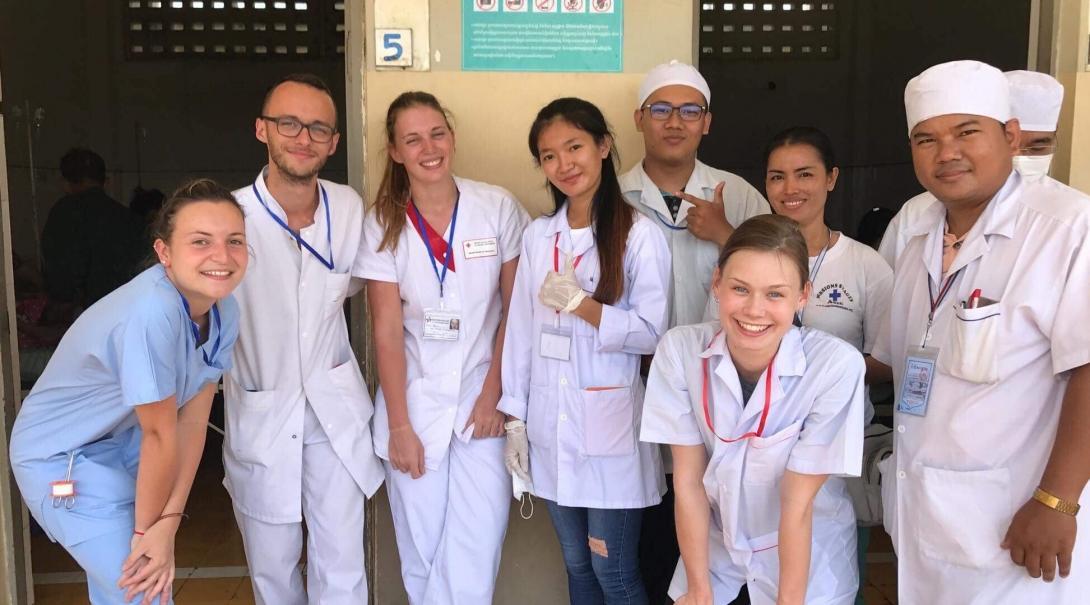No, Med students typically do not get paid for their clinical rotations. However, they may receive a stipend to help cover the costs of living expenses during their rotation. The amount of the stipend varies depending on the school and the program.
Why Don’t Med Students Get Paid?
There are a lot of misconceptions out there about medical students and their compensation. Many people think medical students are paid a salary during their clinical rotations, but that is not the case. So why don’t medical students get paid during clinical rotations?
The main reason why medical students are not paid during Clinical Rotations USA is that they are still considered to be students. They still need to be licensed physicians and cannot bill for their services. If they were to be paid, it would be considered illegal.
Another reason medical students are not paid during clinical rotations is that the hospitals and clinics they are rotating at are not making any money off them. The patients that they see are not being charged for their services. The only people making money off the medical students’ work are the attending physicians and the residents.
So why do hospitals and clinics allow medical students to rotate at their facility if they are not making any money off them? The answer is twofold. First, it is a great way to give back to the community. Allowing medical students to rotate at their facility allows them to gain valuable experience that they will need when they become licensed physicians. Second, it is a great way to recruit future employees. By allowing medical students to rotate at their facility, the hospital or clinic can see them in action and determine if they would be a good fit for their organization.
Do med students get paid during clinical rotations? No, medical students are not paid during clinical rotations. They are still considered to be students and are not licensed physicians yet. If they were to be paid, it would be considered illegal.
So Is There Any Place Med Students Do Get Paid?
The simple answer to this question is no, medical students do not get paid for their clinical rotations. However, there are a few places where medical students may receive a stipend or other financial compensation.
One place where medical students can find compensation is through research opportunities. Many medical schools have research programs that offer stipends to students who participate. These stipends are usually awarded based on merit, so students demonstrating exceptional research ability may receive a higher stipend.
Another place where medical students can find compensation is through teaching opportunities. Some medical schools offer to teach positions to medical students. These positions usually come with a small stipend, but they can be a great way to offset the cost of tuition and living expenses.
Finally, some medical students may be able to find financial assistance through private organizations or scholarships. Several private organizations offer scholarships to medical students. These scholarships are usually awarded based on financial need, academic achievement, or community service.
In conclusion, medical students only sometimes get paid for their clinical rotations. However, there are a few places where medical students can find financial assistance. Research and teaching opportunities are two of the most common sources of financial assistance for medical students. Private organizations and scholarships are also available to help offset the cost of medical school.
What do medical students do during clinical rotations?
Medical students typically spend most of their clinical rotations in hospitals or other medical facilities. During these rotations, they work with patients and learn how to diagnose and treat various medical conditions. In some cases, medical students may also be responsible for patient care.
While on clinical rotations, medical students often work long hours. In addition to their regular duties, they may also be required to attend lectures or participate in other educational activities. As a result, clinical rotations can be demanding and challenging. However, they are also an important part of a medical student’s education and provide an opportunity to learn firsthand about medicine.
What Is the Purpose of Clinical Rotations?
Clinical rotations are an essential part of medical school. They allow students to put their knowledge into practice and to learn from experienced physicians. Rotations also help students decide which specialty they would like to pursue.
Most medical schools require students to complete several clinical rotations to graduate. The number of rotations varies from school to school but typically includes a minimum of four to six weeks in each of the following specialties:
Family medicine
Internal medicine
Pediatrics
Surgery
Obstetrics and Gynecology
Psychiatry
Students may also have the opportunity to rotate through other specialties, such as emergency medicine, neurology, and orthopedics.
During clinical rotations, students work with patients under the supervision of a licensed physician. They take medical histories, perform physical examinations, and order and interpret laboratory tests. Students also learn to document patient encounters and communicate with patients and their families.
In addition to gaining clinical experience, students can observe experienced physicians in action and learn about the day-to-day workings of medical practice. Clinical rotations can be demanding, but they are important to becoming a competent, compassionate physician.
Other Related Blog
How do I get clinical electives in USA 2023?


